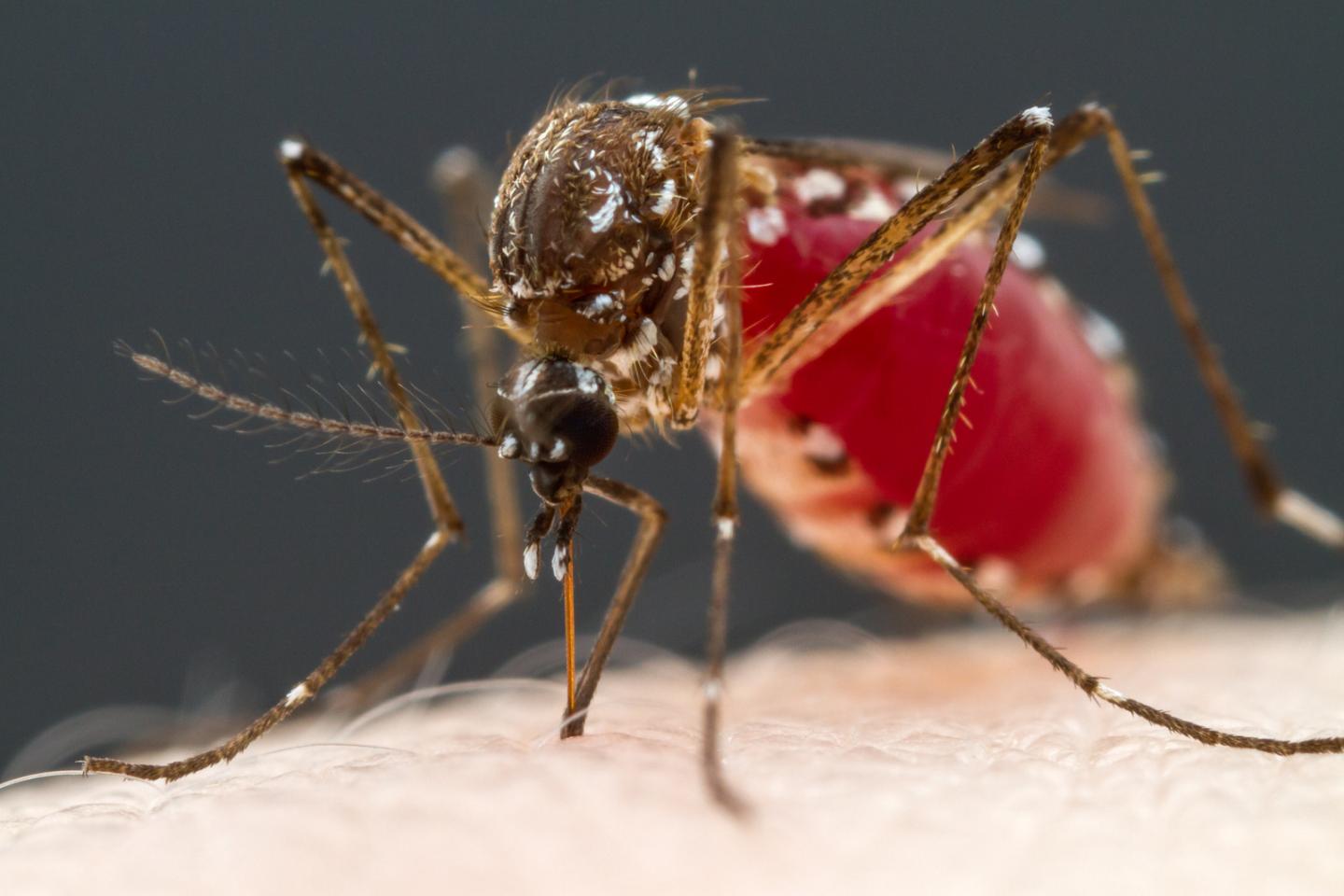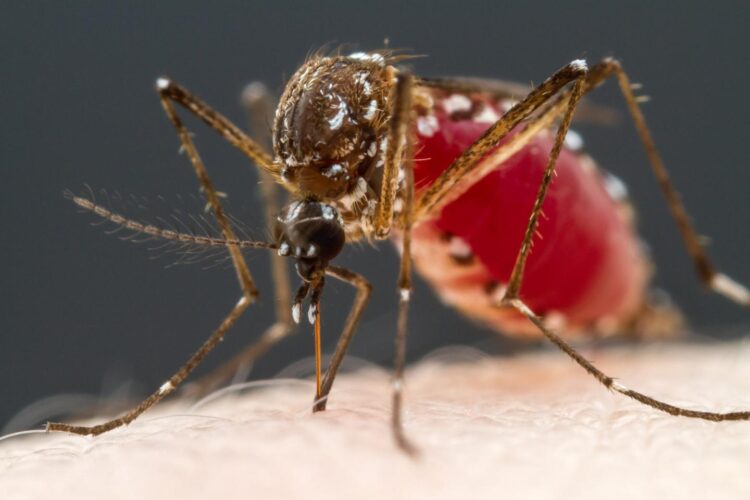
Credit: ©Alex Wild, used by permission
It’s one of the world’s deadliest animals, and it has a taste for human blood: the mosquito.
Mosquitoes spread diseases like malaria, dengue, and yellow fever that kill at least a half a million people each year. Now researchers are learning what humans taste like to mosquitoes, down to the individual neurons that sense blood’s distinctive, delectable flavor.
Female mosquitoes have a sense of taste that is specially tuned to detect a combination of at least four different substances in blood, Howard Hughes Medical Institute Investigator Leslie Vosshall’s team at The Rockefeller University and colleagues report October 12, 2020, in the journal Neuron. The team genetically modified mosquitoes so that researchers could see which neurons fire when a mosquito tastes blood.
“This is definitely a technical tour de force,” says neuroscientist Chris Potter of the Johns Hopkins University School of Medicine, who studies mosquito repellents. Identifying the specific taste neurons associated with blood might be something “we could use against the mosquito,” he says.
Vosshall and her team already knew a great deal about the insect’s other finely tuned senses. In previous work, for instance, they’ve found that mosquitoes can detect the repellent DEET with their legs and have identified an odorant receptor that mosquitoes use to distinguish between humans and non-humans. But little is known about mosquitoes’ sense of taste, despite being key to spreading illness. “If mosquitoes weren’t able to detect the taste of blood, in theory they couldn’t transmit disease,” says Veronica Jové, an HHMI Gilliam Fellow at Rockefeller who led the work in Vosshall’s laboratory.
Only female mosquitoes feed on blood, which they need for their eggs to develop. That puts females in a unique position. They need to distinguish between the sweet nectar they eat for most of their meals and the blood they gorge on before laying eggs.
Jové suspected that female Aedes aegypti mosquitoes, unlike males, would be able to distinguish between the two substances by taste. Indeed, in behavioral experiments she found that female mosquitoes have two feeding modes that use different mouthparts and detect different flavors. A nectar-feeding mode detects sugars and a blood-feeding mode uses a syringe-like “stylet” to pierce the skin and taste blood. Jové tricked the mosquitoes into the blood-feeding mode by offering them a mix of four compounds: glucose (a sugar), sodium chloride (salt), sodium bicarbonate (found in both blood and baking soda), and adenosine triphosphate, or ATP, a compound that provides energy to cells.
Vosshall was curious, so she asked Jové to whip up an ATP solution in the lab and then took a sip. “It doesn’t have a taste at all,” she says. “ATP is this special mystery stuff that tastes like nothing to humans. But it’s got to be incredibly exciting and rewarding for the mosquito.”
Just as a human has taste buds that differentiate between salty, sweet, bitter, sour, and umami flavors, a mosquito’s stylet has neurons specialized to respond to particular flavors. To see these taste neurons in action, the researchers genetically modified mosquitoes with a fluorescent tag that glowed when a nerve cell was activated. Then they watched which cells in the stylet lit up in response to different meals. Only a subset were activated by blood, including both real blood and the researchers’ artificial mix.
So just what does human blood taste like to a mosquito? Perhaps the closest we can say is that it’s a little salty and a little sweet. It’s a bit like trying to describe the way a honeybee sees a flower in ultraviolet hues invisible to the human eye, or how a bat eavesdrops on sonar waves we can’t hear, Vosshall says. Likewise, a female mosquito can taste things we can’t. “There is nothing like this in the human experience,” she says.
The findings shed light on just how specially adapted the female mosquito is to find blood. Jové and Vosshall say they hope that a better understanding of mosquitoes’ senses will ultimately lead to new ways to stop them from biting us and spreading disease.
One possibility might sound like science fiction, Vosshall says, but there is precedent. “I just gave my dogs their monthly flea and tick medication, which is oral,” she says. Perhaps something similar could eventually be done for mosquitoes – a drug that humans could take before going to a mosquito-infested area that would interfere with mosquito’s taste for blood.
That idea, which boils down to making humans less delicious, raises one last question. Are some people really “tastier” to mosquitoes than others? “We’re all tasty enough for a mosquito,” Jové says. Once they detect blood, she says, “we don’t have a sense they’re very picky.”
###
Media Contact
Meghan Rosen
[email protected]





